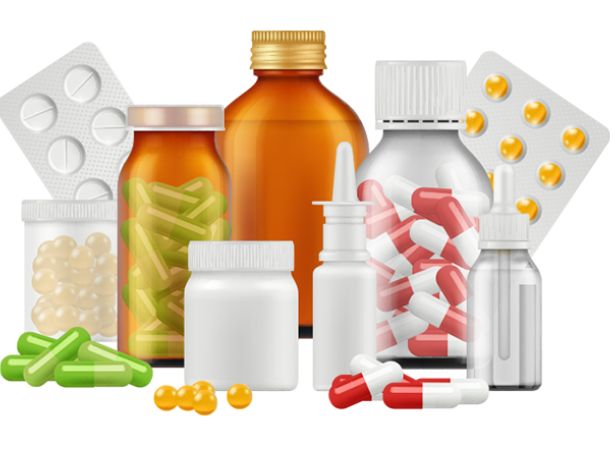The life sciences industry plays a pivotal role in improving human health and advancing medical technologies. Whether it’s pharmaceutical products, medical devices, or laboratory supplies, the smooth functioning of this industry depends heavily on an efficient supply chain. Wholesale distributors within this sector are crucial in ensuring that products reach healthcare providers, research institutions, and other essential users. This article will explore the role of Lifesciences wholesale distributors, their significance, and how they contribute to the healthcare ecosystem.
What Are Life Science Wholesale Distributors?
Life science wholesale distributors are businesses that purchase products in bulk directly from manufacturers or other suppliers and then sell them in smaller quantities to secondary buyers. These buyers typically include hospitals, laboratories, pharmacies, healthcare providers, and research institutions. The distributors act as intermediaries in the complex supply chain, ensuring that medical and scientific products are available where and when they are needed.
Wholesale distributors of life science products typically deal with a wide range of items, including:
- Pharmaceuticals: Prescription and over-the-counter medications.
- Medical Devices: Instruments used for diagnosing, treating, and monitoring health conditions.
- Laboratory Equipment: Tools and reagents used in research and diagnostic laboratories.
- Biotechnology Products: Including biotech drugs, genetic testing tools, and other biotechnology-based innovations.
- Personal Protective Equipment (PPE): Essential items such as gloves, masks, gowns, and face shields, particularly important in times of health crises like pandemics.
These distributors form the backbone of the healthcare supply chain, ensuring that medical professionals and researchers have access to the tools and products they need to perform their duties effectively.
The Importance of Life Science Wholesale Distributors
- Ensuring Product Availability
One of the most critical roles of life science wholesale distributors is ensuring the availability of medical products at the right time and in the right place. In healthcare, timely access to the right drugs, medical devices, and equipment can save lives. Distributors ensure that hospitals and pharmacies are stocked with essential medications and tools, allowing healthcare providers to deliver prompt and efficient care to patients.
- Maintaining Inventory and Reducing Shortages
Efficient inventory management is crucial in preventing shortages of vital medical supplies. Wholesale distributors help maintain a steady flow of products by working closely with manufacturers to forecast demand and adjust stock levels accordingly. This proactive approach helps mitigate supply disruptions and ensures that healthcare institutions do not run out of critical supplies.
- Regulatory Compliance and Quality Assurance
The life sciences industry is highly regulated, with strict guidelines governing the production, storage, and distribution of medical products. Wholesale distributors must ensure that the products they handle comply with all relevant regulations, including those set by agencies like the U.S. Food and Drug Administration (FDA), the European Medicines Agency (EMA), and other regulatory bodies around the world.
Wholesale distributors often work with manufacturers to ensure products meet quality standards and that all necessary certifications are in place. They also handle product recalls or safety issues efficiently, ensuring that defective products are removed from the supply chain quickly.
- Global Reach and Localization
Many life science wholesale distributors operate on a global scale, connecting manufacturers from different regions with buyers around the world. These distributors bridge the gap between local healthcare needs and international supply sources. They are often experts in navigating customs, tariffs, and regulations specific to each region, ensuring the safe and legal importation and exportation of goods.
- Providing Technical Expertise and Support
In addition to the logistics of delivering products, life science wholesale distributors often provide technical support and advice to healthcare professionals, researchers, and scientists. For instance, when supplying specialized medical devices or laboratory equipment, distributors may offer training, user manuals, and after-sales support to ensure that the products are used correctly and safely.
- Cost Efficiency
By purchasing products in bulk from manufacturers, life science wholesale distributors can take advantage of economies of scale, allowing them to offer products at more competitive prices. These cost savings can be passed on to healthcare providers, ensuring that patients have access to affordable medical care. Distributors also help minimize the overhead costs associated with direct sourcing, such as inventory management and shipping, by consolidating products for delivery.
Types of Life Science Wholesale Distributors
Life science Us Wholesale Distributors vary in terms of their size, market focus, and geographic coverage. The major types of distributors in this sector include:
- Pharmaceutical Distributors
These distributors focus specifically on the bulk distribution of pharmaceutical products. They serve a wide range of customers, including hospitals, pharmacies, clinics, and pharmaceutical wholesalers. Pharmaceutical distributors are responsible for ensuring that medications are available and delivered safely to healthcare facilities.
- Medical Device Distributors
These distributors focus on the sale and distribution of medical devices. They may work with hospitals, surgical centers, and healthcare providers to supply everything from diagnostic imaging machines to surgical instruments. Medical device distributors must adhere to strict regulations concerning product safety and efficacy, which makes their role crucial in maintaining patient safety.
- Laboratory Supply Distributors
Laboratories, whether clinical, research, or educational, require a wide array of supplies, from chemicals and reagents to specialized equipment. Wholesale distributors in this category ensure that laboratories are well-equipped to perform tests, experiments, and research. They often deal with scientific instrumentation, consumables, and lab furniture, playing a vital role in advancing scientific discovery.
- Biotech and Life Sciences Distributors
Biotechnology is a rapidly growing sector within life sciences, with advancements in gene therapy, biologics, and other cutting-edge technologies. Distributors that specialize in biotech products serve research organizations, pharmaceutical companies, and hospitals that need highly specialized materials, such as monoclonal antibodies, cell cultures, or reagents used in genetic research.
- Healthcare Equipment and Supplies Distributors
In addition to pharmaceuticals and medical devices, distributors may also specialize in more general healthcare supplies, such as hospital beds, medical furniture, PPE, and sterilization equipment. These distributors often provide products that are essential for the day-to-day functioning of healthcare facilities.
Challenges Faced by Life Science Wholesale Distributors
While life science wholesale distributors play an essential role in the healthcare supply chain, they also face a number of challenges:
- Supply Chain Disruptions
Global events such as pandemics, natural disasters, or geopolitical issues can disrupt supply chains, causing delays and shortages. For example, during the COVID-19 pandemic, the demand for personal protective equipment (PPE) surged, leading to shortages. Wholesale distributors had to adapt quickly, sourcing products from new suppliers and ensuring that hospitals and healthcare workers had the supplies they needed.
- Regulatory Complexity
Life science wholesale distributors must navigate a complex web of regulations, including local and international laws governing the sale, distribution, and transportation of medical products. These regulations vary from country to country, and compliance can be time-consuming and costly. Amazon Fba Distributors must stay updated with regulatory changes to ensure they do not violate any laws.
- Maintaining Product Quality
Given the potential impact of defective medical products on patient health, wholesale distributors must rigorously inspect and test the items they handle. Managing the logistics of transporting delicate or time-sensitive products, such as biologics or temperature-sensitive vaccines, adds another layer of complexity to their operations.
The Future of Life Science Wholesale Distributors
As the healthcare sector continues to evolve, so too will the role of life science wholesale distributors. Advancements in digital technology, including the use of artificial intelligence (AI) and blockchain, may lead to more efficient supply chain management, reducing costs and improving the traceability of medical products. The growing demand for personalized medicine, advanced therapies, and telemedicine will also drive changes in the way life science distributors operate, particularly in meeting the specific needs of healthcare providers.
Conclusion
Life science wholesale distributors play a vital role in the healthcare ecosystem by ensuring the timely delivery of medical products and services. Their ability to maintain inventory, ensure compliance with regulatory standards, and provide value-added services such as technical support makes them indispensable to healthcare providers and researchers. Despite the challenges they face, Charlie Naylor Key Lifesciences distributors continue to adapt, playing an essential role in improving global health outcomes and advancing medical science.




